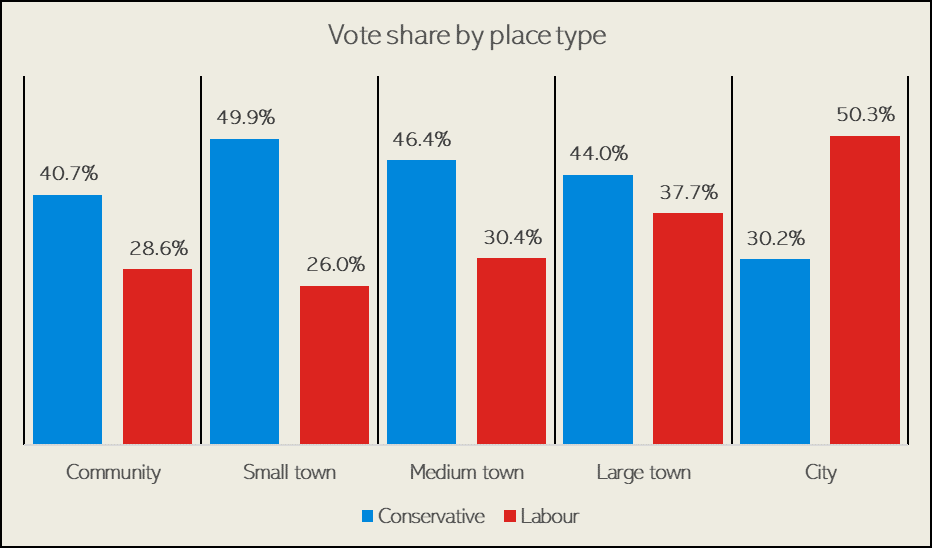2020: a new year and a new decade. What awaits us?
I’m afraid my crystal ball starts to get foggy as it strains to peer down the long road to 2030, but what I do know is that if you crave certainty (as most people do), the next ten years will test you.
But don’t despair: uncertainty, once you choose to accept, plan and shape it, is a world of opportunity.
As my colleagues discussed in our two-part review of 2019, who could have predicted how this year unfolded?
The next twelve months are already brimming with enough topics and themes to fill the entire decade: a Presidential election in the US (buckle up); a general election here at home (game on); and an emboldened Boris ‘getting Brexit done’ (new reality).
The big themes that dominated the latter stages of this closing decade—identity, activism, climate change, culture, taxation, data—are intensifying.
The evidence points to a clear shift in people’s expectations of their employers, politicians, and others in leadership roles. A job is about more than a salary. A country is about more than economy. A product is about more than its price. And day-to-day is about more than simply existing.
Place and time
Election results the world over are bearing this trend out. People are moving left on the economy, favouring increased public spending over tax cuts; on specific social challenges, the move is right, particularly on matters like migration.
Much of what is driving this sentiment can be traced to where you’re living or, rather, where you’re not.
One of the most compelling analyses of the 2019 UK election results is the image below, which details how people voted regionally, from rural communities and villages right through to the international hub that is London.

If you’re a decision-maker, policymaker, investor, or seeking to influence, the starkness of the blue–red divide is chilling, if not surprising. I’d confidently predict that equivalent analysis in most countries would show a largely similar conclusion.
All of this is creating palpable uncertainty and strain on virtually everything. The task of meeting and managing these challenges is a stressful one for those in leadership positions. The noise it creates, and the relentlessness of everything coming at you, can be difficult to manage for even the most resilient of leaders.
Unfortunately, my crystal ball is not detecting a silver bullet. It is however, informed by insight, experience, and the age-old indicator that the best predictor of future behaviour is past behaviour. Those who proactively embrace uncertainty will do better than those who don’t.
Accept the inevitable
How do you embrace something as nebulous as uncertainty? You own it.
In an organisation, owning uncertainty involves binding every member of your team together to a shared strategy that is relentlessly implemented.
It starts with accepting—openly—that uncertainty is a reality.
Leaders who pretend uncertainty doesn’t exist are fooling no one except themselves. They are also ceding control to others, be they competitors, detractors, or energy drainers, which only serves to hurt the organisation they are charged with leading.
Define what uncertainty means to your business.
The concept of uncertainty is open to varying interpretations. Often, they are not uncertainties at all or are simply part and parcel of business.
Maintaining sales, investment decisions, performance management, attracting and retaining talent, responding to growth pains, macro-economic factors—these are largely inescapable uncertainties. Every road has its bumps, and nothing of value was ever achieved easily.
Once defined, you then move to the solution stage.
Your solution must involve putting in place a plan that not only mitigates risk but actually capitalises on uncertainty. Remember that this plan is only as good as its execution and the results it produces over time.
At the heart of this uncertainty acceptance strategy is the leader, the culture-shaper who every stakeholder ultimately looks to for direction and reassurance.
If the past decade has taught us anything, it is that a failure to accept and shape uncertainty—in business and politics—creates a chasm that can be painful if not impossible to close.
You can’t wish uncertainty away or allow it to dictate terms. Get comfortable with uncertainty. It won’t just be good for your business in the 2020s—it will be good for you.

About the author
Founder and Managing Director of 360, Dan’s career spans business, politics and professional representation. He has overseen the agency’s rapid growth, developing a premier client portfolio and a talented team of professionals.
